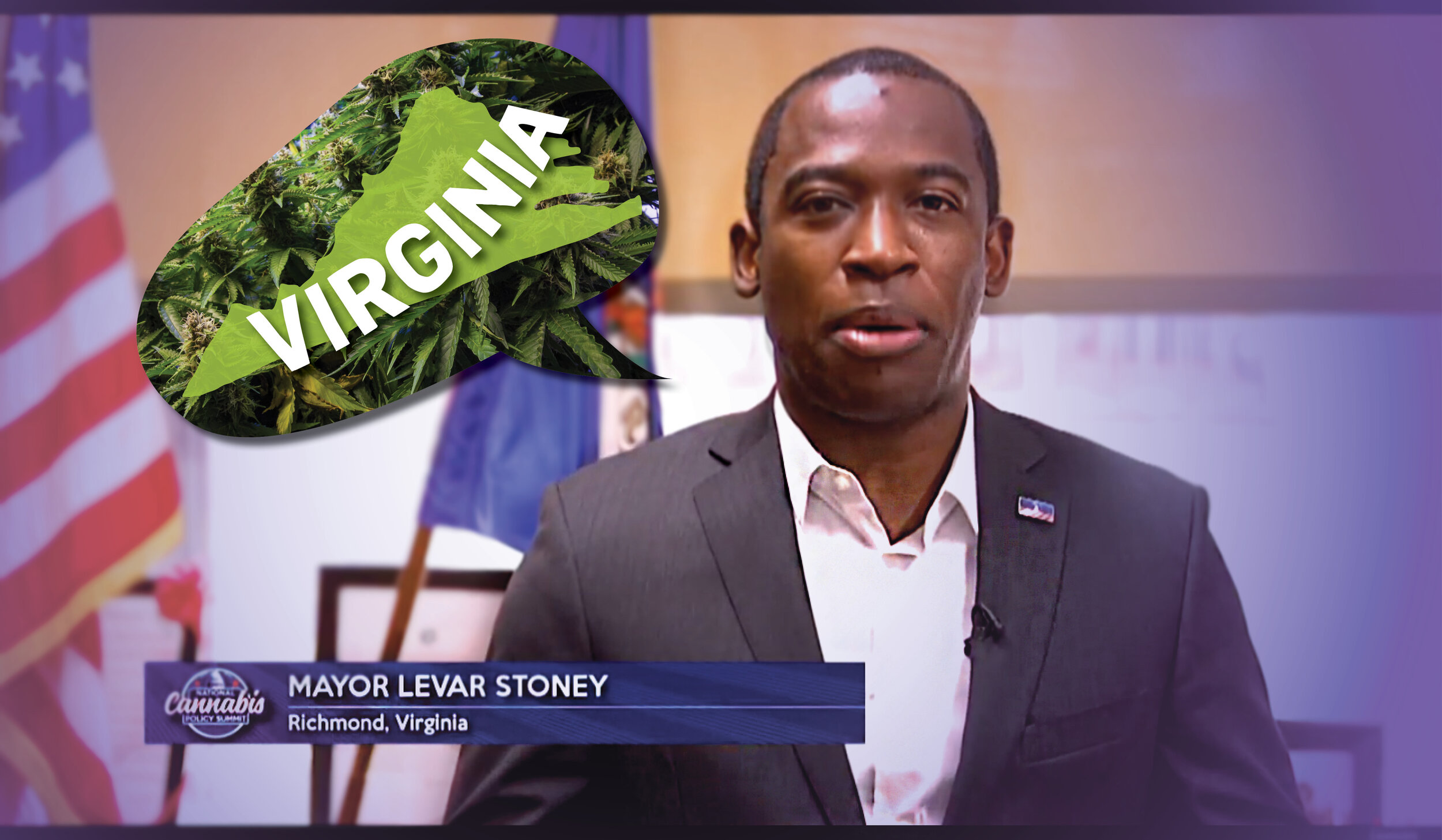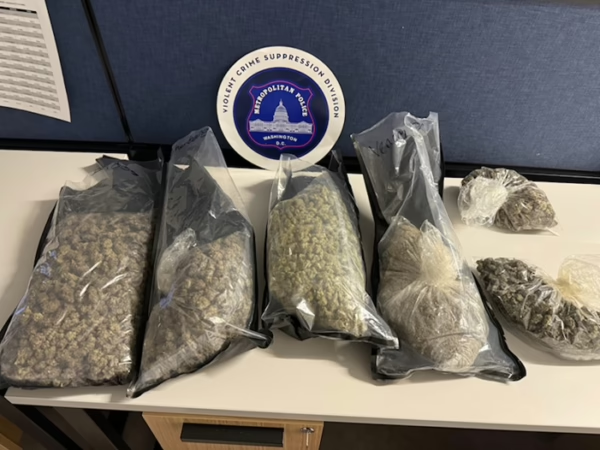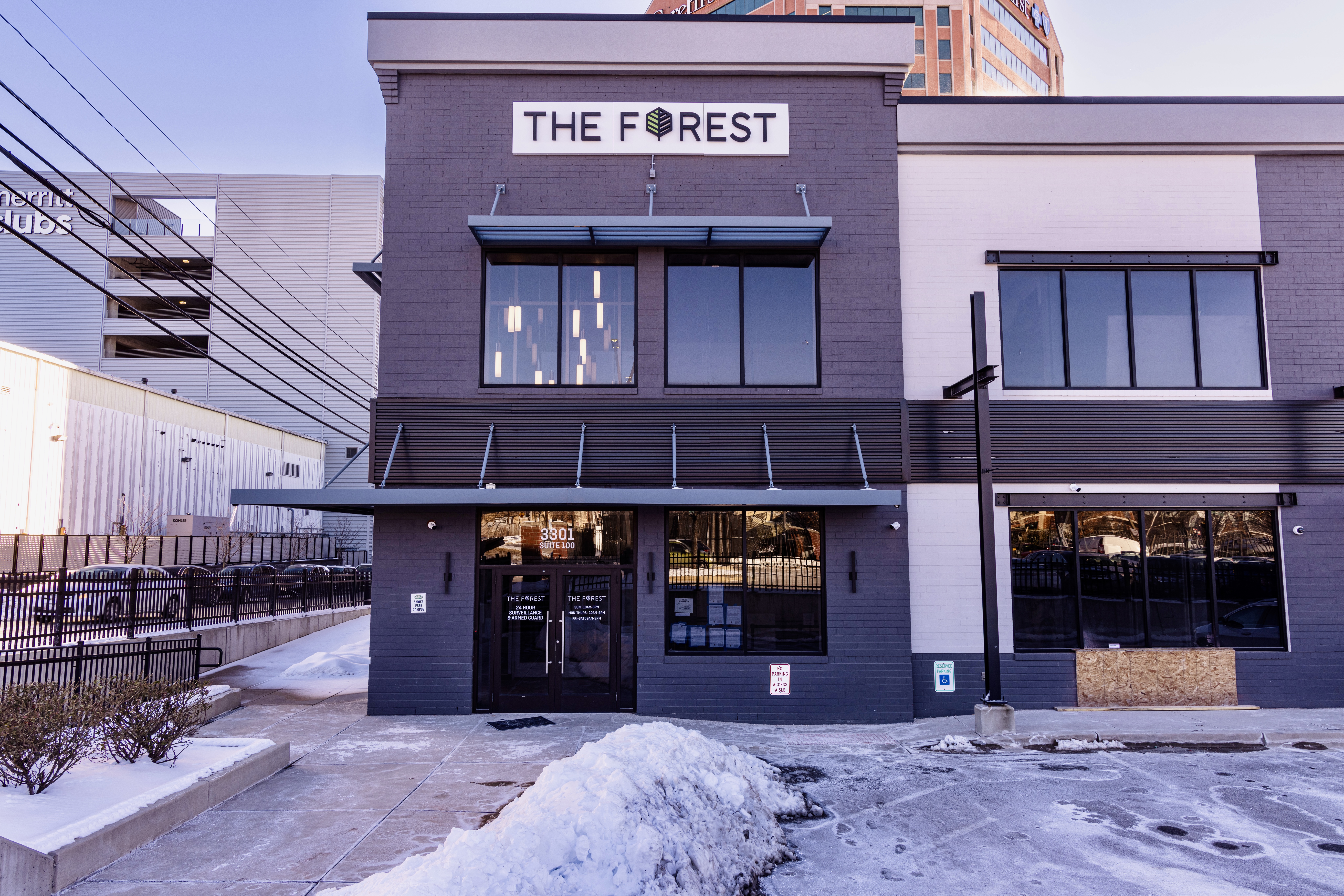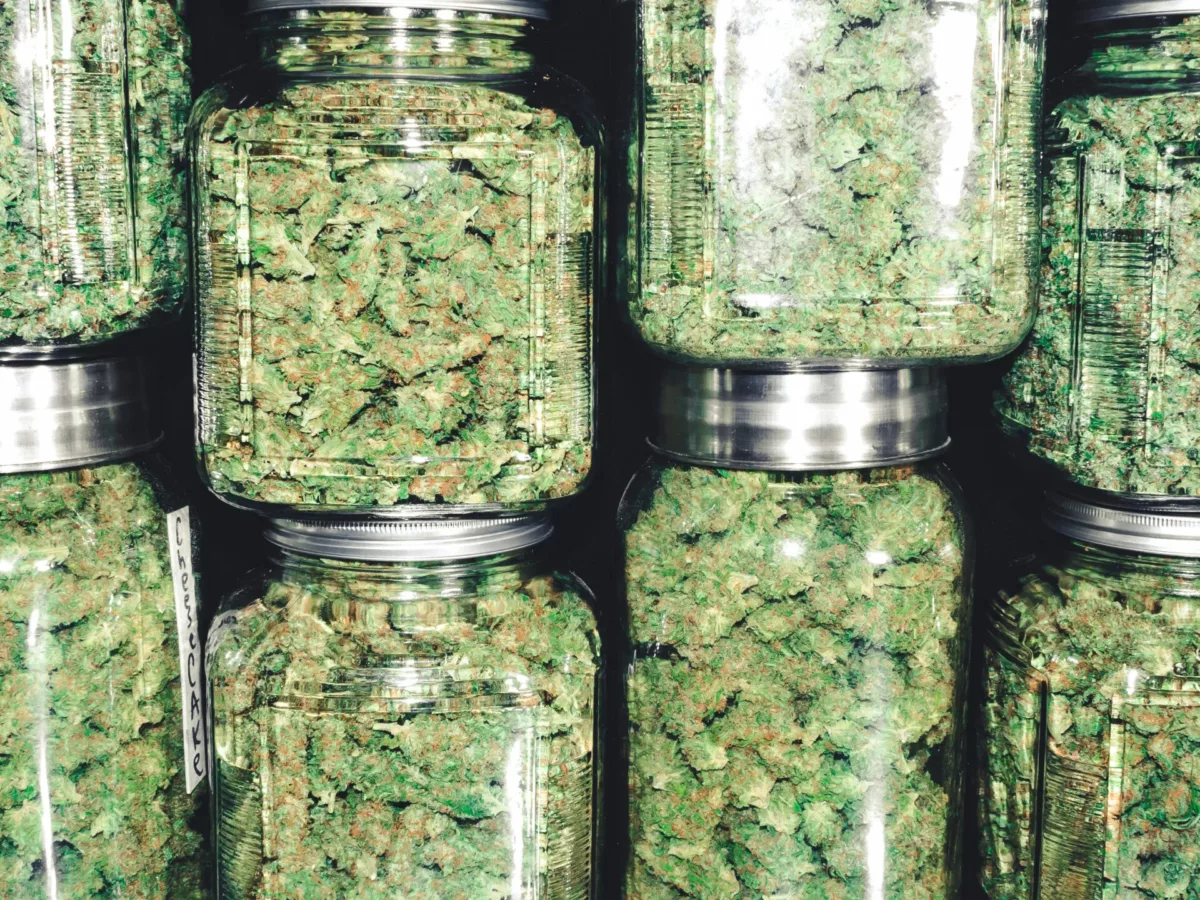Last week, the National Cannabis Policy Summit happened—virtually—and Richmond, Virginia Mayor Levar Stoney was among those who spoke. Like many other lawmakers in Virginia, Stoney pushed for cannabis legalization immediately after cannabis decriminalization went into effect. In August, Stoney sent a letter to Virginia’s governor Ralph Northam demanding the legalization and regulation of cannabis connecting it to racial justice.
In the letter, Stoney said that Virginia should “legalize marijuana, establish an excise tax system for recreational use, and utilize that revenue to provide needed funds for Virginia’s at-risk add-on”—a program allotting money to low-income students in the state. Stoney also mentioned that cannabis arrests “comprise a majority of the total arrests in Virginia” and that those arrests are disproportionately Black.
Stoney repeated those points and expounded on them when he spoke at last week’s summit before a series of panels focused on cannabis and “law and order.” He began by noting that the issues surrounding cannabis are “deeply connected to our country’s current racial justice discourse” and criticized the war on drugs as “a tool to systematically target Black and brown communities.” He went on to discuss how legalization—which Stoney characterized as imminent—will not be enough to counter decades of the racist war on drugs.
“Benefits of that legalization must go to build wealth in communities of color,” Stoney said. “Legalization represents an amazing opportunity for restorative economic justice. It’s an opportunity to provide well-deserved reparations for decades of pain, displacement, and incarceration.”
Stoney explained how that would happen.
“First, all taxes raised on newly legalized recreational cannabis products should go towards supporting the students who need it the most—through our state’s at-risk add-on. The at-risk add-on is an influx of education funding benefiting schools with the highest percentage of students receiving free lunch. It overwhelmingly benefits Black and brown students helping them reach their full potential. These kids deserve those tax dollars,” Stoney said. “Second, maximize the entrepreneurial opportunity for communities of color above all else. I don’t want to suddenly see cannabis co-opted from a community that has been unfairly targeted for its possession. You’ve seen it happen. We must create the infrastructure to actively guard against it.”
Directly invoking the way in which George Floyd was killed by Minneapolis police officer Derek Chauvin, Stoney said, “It’s not enough for the state to take the knee off the neck of people of color, they have the added responsibility to lift them up.”
You can watch Stoney’s speech here.
Meanwhile, Virginia’s Special Legislative Session has continued addressing cannabis reform, with the House and Senate approving expungement bills last week.
Senate Bill 5043 says that if those who have been charged with cannabis pay all of the court costs and the charge is five years or older, then they can have their record expunged. Previously, the law said that someone can only have their cannabis convictions expunged if they are pardoned. Increasingly, cannabis charge expungement is becoming a major concern amid cannabis reform complete with conversations on how to make this “automatic” by eliminating the numerous barriers it takes to petition for expungement. Although SB 5043 is not quite that ambitious, it does also establish an Expungement Fee Fund, which would use expungement fees to assist in paying those fees for “persons who are indigent or represented by court-appointed counsel.” This bill which passed the Senate, would not go into effect until 2022.
The House approved its own expungement bill as well, House Bill 5146, which does invoke “automatic expungement,” by “establish[ing] a process for the automatic expungement of criminal records for certain convictions, deferred dispositions, acquittals, and for offenses that have been nolle prossed or otherwise dismissed.” Among those are cannabis possession charges. HB 5146 has been referred to the Senate Judiciary Committee.
There are also updates on some bills previously covered. Last week, Senate Bill 5029 which prevents police from searching a person or their vehicle solely because of cannabis smell passed, and House Bill 5058, which makes cannabis possession a secondary offense which means that someone can only be charged if they are charged with something else more serious, has been referred to the Senate Judiciary Committee.
Photo illustration by Kathy Wyche





